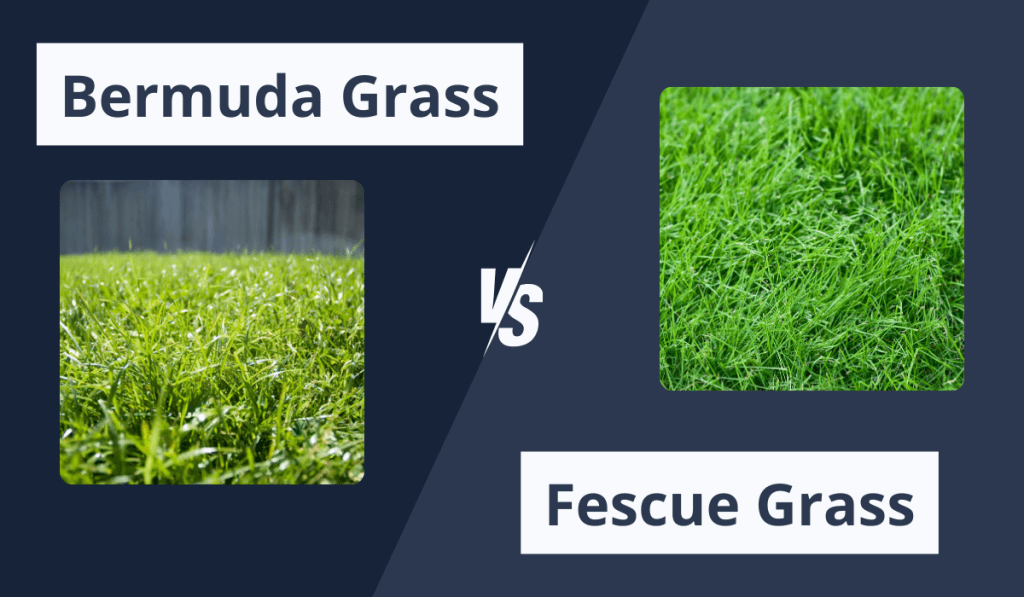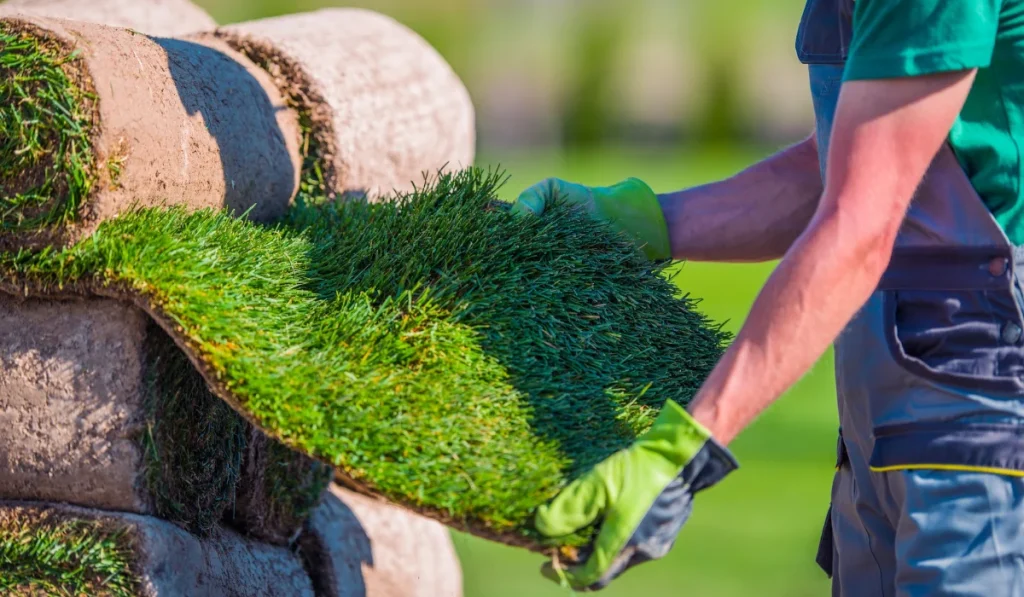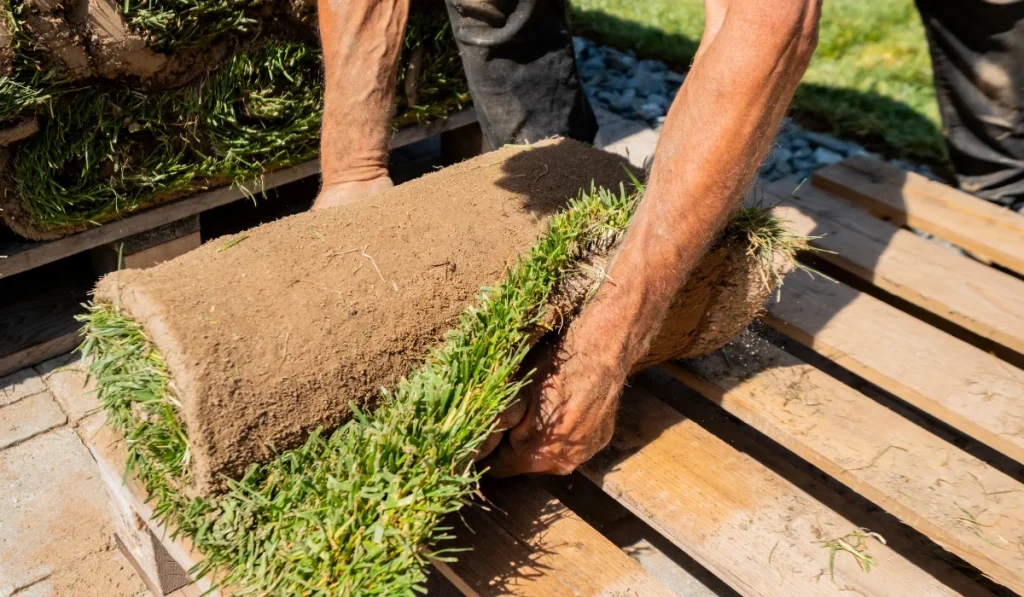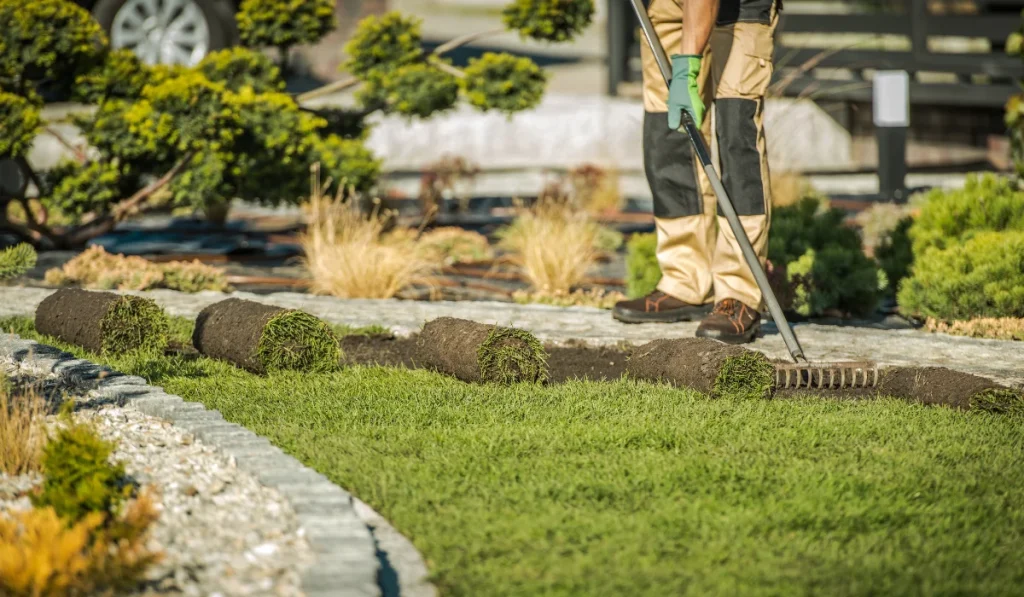Struggling to choose between Bermuda grass and Fescue for your lawn? Both grasses offer distinct benefits and limitations that can affect your decision.
So why is it crucial to understand the differences between Bermuda grass and Fescue? Keep reading to find out which grass type best suits your needs.
Key Takeaways
- Bermuda grass excels in warm, sunny climates and is valued for its resilience and aggressive growth, making it ideal for high-traffic areas.
- Fescue grass has a fine texture and shade tolerance, making it suitable for varied lawn applications in cooler, temperate climates.
- The primary differences between Bermuda and Fescue grass include climate preference, maintenance needs, and aesthetic characteristics.
- Choosing the right grass type for your lawn involves considering climate, soil type, and aesthetic preferences.
Bermuda Grass vs. Fescue Grass: Key Differences

Bermuda and Fescue grasses have unique characteristics that suit different environments and lawn-care preferences. Understanding these differences lets you decide which grass type best suits your needs.
Climate Tolerance
Understanding the climate tolerance of Bermuda grass and Fescue is crucial. Here’s how each grass type performs under different climatic conditions:
| Climate Tolerance | Bermuda Grass | Fescue |
|---|---|---|
| Ideal Climate | Warm, humid climates | Cooler, temperate areas |
| Temperature Tolerance | High temperatures | Moderate temperatures |
| Drought Tolerance | High | Moderate |
Maintenance Requirements
Maintenance is an essential factor when choosing between Bermuda and Fescue grass. Here’s what you must consider of their mowing, watering, and nutrient needs:
| Maintenance Needs | Fescue | Bermuda Grass |
|---|---|---|
| Mowing Frequency | Frequent | Less frequent |
| Water Needs | High | Moderate |
| Fertilizer Requirements | High | Moderate |
Appearance
When it comes to appearance, the choice often comes down to personal preference. Consider these visual differences to help you choose the grass that best fits your landscaping vision:
| Aesthetic Appeal | Fescue | Bermuda Grass |
|---|---|---|
| Green Color Intensity | Deep, rich green | Softer, paler green |
| Texture | Dense, uniform | Fine, more delicate |
| Year-Round Green | No | Yes |
Pros and Cons of Bermuda Grass
Pros
- Drought tolerance in dry climates, as it requires less regular water once established.
- It thrives in hot weather, handling temperatures of 100°F with little stress.
- Low maintenance, needing infrequent herbicides, and pest control.
- It’s durability makes it perfect for high-traffic areas like sports fields.
Cons
- Frequent mowing during the growing season.
- Regular aeration is required to prevent thatch buildup.
- Has a dormant season, during which it turns brown in colder months.
Pros and Cons of Fescue Grass
Pros
- Shade tolerance makes it a good choice for shaded areas. However, Fescue still requires 5-6 hours of sunlight a day, especially in the growing season.
- Its durability withstands heavy foot traffic, making it suitable for high-use areas.
- It thrives in less warm climates.
Cons
- Requires attention to maintain its health and beauty.
- It is heat sensitive, often browning out or becoming stressed in high temperatures.
- Requires frequent watering, especially during dry spells.
- Is susceptible to lawn diseases in overly moist conditions..
How to Choose the Right Grass for Your Lawn
Each type of grass has unique requirements and characteristics. Selecting the best grass type for your lawn involves considering specific factors like soil type and usage.
Factors to Consider When Choosing Grass
Here are the factors that will help you decide on the right grass type for your lawn:
- Climate: Understand the cool and warm climate patterns to help you select the best grass.
- Soil Type: To determine the suitable grass, identify whether your soil is sandy, clay, or loamy.
- Shade and Sunlight: Some grass types thrive in full sun, while others tolerate shade.
- Foot Traffic and Usage: Consider how much use your lawn will get, especially from kids and pets.
- Maintenance: Assess how much time and resources you will dedicate to lawn care.
- Aesthetic Preferences: Based on your preferred look, choose a lush, green lawn year-round or a more seasonal variation.



